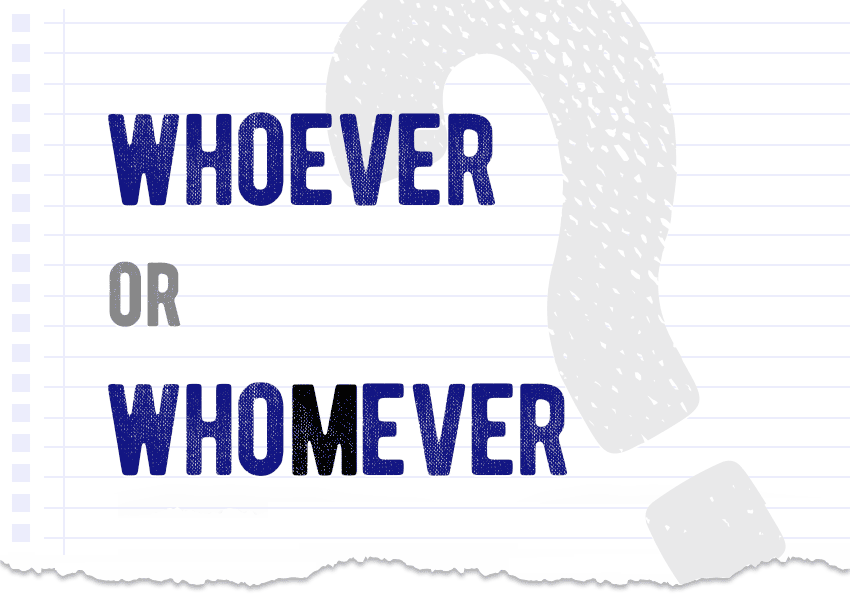Whoever or whomever – which form is correct?
Whoever or whomever? This dilemma is not only present among foreigners but also native speakers. Though there are many examples of variations between British and American English, this is not the one. Both whoever and whomever are correct, and despite the growing acceptance of their interchangeability, they should be used differently.

Whoever or whomever – what do they mean?
The pronouns whoever and whomever are used to preserve the indefiniteness of the subject that performs the action or of the object of the action. They replace personal pronouns in their subject form (I, you, he, she, it, we, they) and their object form (me, you, him, her, it, us, them).
Whoever or whomever – what’s the difference?
Whoever is a subjective pronoun that assumes the role of a subject. It might be easier to understand this issue by comparing whoever to who that replaces pronouns, such as I, you, he, she, it, we, and they. Behind whoever and who there is a person that performs a certain activity. On the other hand, whomever is an objective pronoun and corresponds in a sentence to the object. Just like whom, it replaces me, him, her, us, them and signifies the person on whom a certain action is performed.
Whoever or whomever? It’s all clear now!
There is an easy method to crack the problem of choosing between whoever and whomever. If a given pronoun could be exchanged for he/she, it means that who or whoever will be sought. If, on the other hand, him/her forms are correct, it means that whom or whomever should appear in a given sentence.
Examples of whoever and whomever in sentences
Whoever
- Whoever wants to go on this trip must buy a ticket.
- Whoever crosses the line first wins the race.
Whoever
- Give this flower to whomever you find appealing.
- They can meet up with whomever they want.


